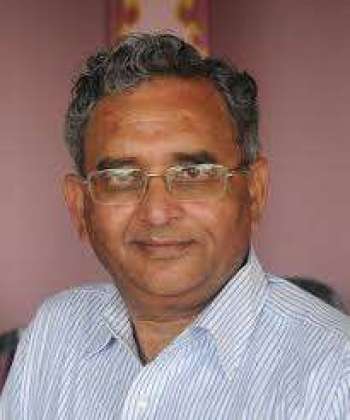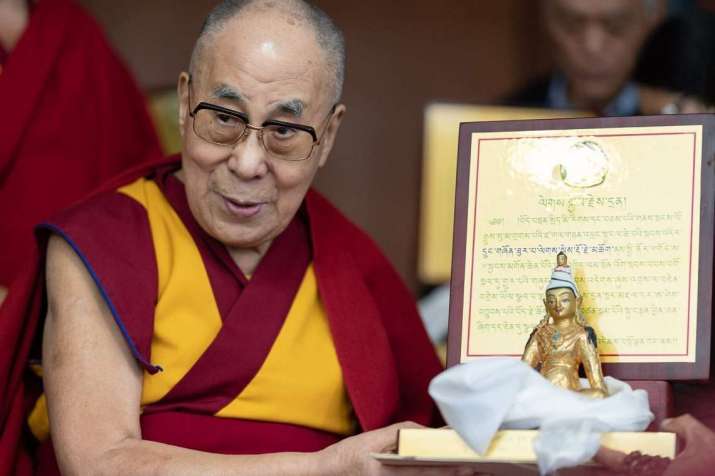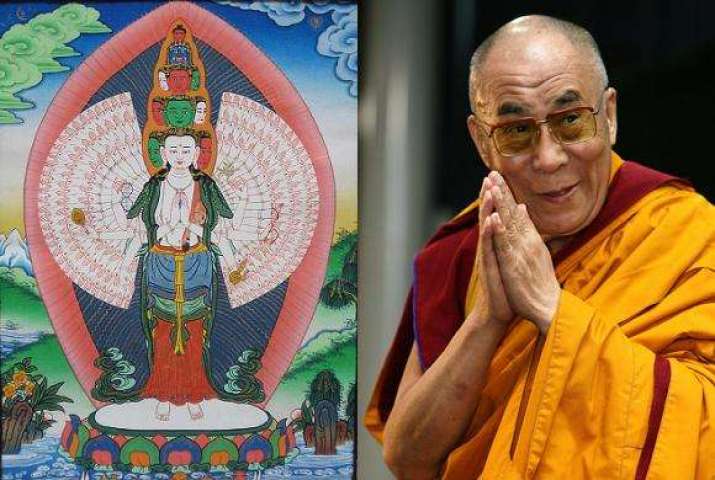His Holiness the Dalai Lama told Indian journalist Vijay Kranti in a recent interview that his reincarnation would certainly not fall into Chinese hands so that he could continue to work on behalf of the Tibetan people. As 2019 mark 60 years of life as a refugee in India, the spiritual leader spoke this month of his sadness, his hopes, the importance of continued nonviolence in the Tibet freedom movement, and why he is thankful to the Chinese government.
 Vijay Kranti. From tibetsun.com
Vijay Kranti. From tibetsun.comThe Dalai Lama, the senior most reincarnate monk (or tulku) in the Gelug tradition, former political leader of the Tibetan people, and 1989 Nobel Peace Prize winner, spoke from his home in exile in Dharamsala, India. Vijay Kranti, a photographer and Tibetologist in addition to his work as a journalist, has met with and interviewed the Dalai Lama on several occasions over a period of nearly 50 years, offering an intimacy that is often lost in news coverage and interviews with the spiritual leader.
Kranti began by asking how life as a refugee has affect the Dalai Lama personally, to which His Holiness replied: “Generally speaking, these years have been a sad period. For the Tibetan nation as a whole this is the darkest period in history. But then difficulties and problems also help you come closer to reality. They also increase your inner strength. If China had not occupied Tibet then I might have been living in comfort. In that case I may have been a superficial Dalai Lama.” (News Intervention)
“You see, Tibetans never had as many photographs of previous Dalai Lamas as they have of this Dalai Lama,” he continued. “And none of the previous Dalai lamas were ever interviewed by the BBC or the international press. Who did it for me? The Chinese government! So don’t you think I should be thankful to them [laughs]. . . . That is why the present Dalai Lama has become the most needed, most pivotal personality. But also the saddest Dalai Lama ever.” (News Intervention)
The Dalai Lama also credited the Chinese government’s ruthlessness in Tibet with strengthening the resolve of Tibetans and their supporters. So here again, he said, “be thankful.” When Kranti questioned him about the frustrations of Tibetan youth, the Dalai Lama replied that if resistance becomes violent, he will quit, reiterating, “Nonviolence is the only way.” (News Intervention)
Asked about the prospect of his next incarnation, the Dalai Lama replied, “The most important thing is that the world is always changing. Tibetan customs, Tibetan institutions, the way of living and thinking would keep on changing.” Pressed further, he noted, “Current circumstances show that it is necessary that there should be another Dalai Lama after me. And here I want to make it very clear that the reincarnation, or rebirth of the present Dalai Lama will never fall into Chinese hands because the Dalai Lama—I mean the present Dalai Lama—deliberately left his country because of pressing circumstances.” (News Intervention)
The logic behind his choice to leave Tibet for exile in India, he continued, was to work for the Tibetan people, and his reincarnation would follow that logic as well. He offered an excerpt of the Bodhisattva vow, one of his daily prayers, which states: “As long as space remains, and as long as the living beings’ sufferings remain, I shall be there to serve them and to dispel their misery.” (News Intervention)

















